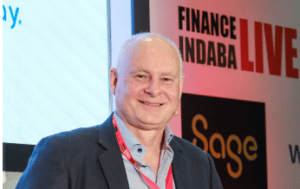
As finance professionals, we’re becoming more and more relied upon to steer businesses, even going as far as exiting things that don’t work and supporting innovations that new technology enables. By applying the example of Tesla to the finance world, one can learn about ambition and how to do things that are dramatically different from the status quo, said Darrel Orsmond, industry head of financial services at enterprise application software company, SAP Africa.
“People think about change in different ways,” he says. “Considering the fact that certain cultures are ingrained in companies, you therefore have to think really hard about what you’re trying to do. If you get things marginally wrong, the failure is business wide.”
The convergence of industries that has been accelerated by COVID-19 has facilitated a more integrated network economy and reinforced the fact that change is inevitable. “As industries converge and we all move into one another’s spaces, business demands fundamentally shift,” said Darrel. So how do we equip ourselves to be prepared, especially considering predictions that by 2024, tiny bits of legacy infrastructure will be left in functions like finance?
“Companies are recognising that there’s another way to run their businesses, which necessitates reporting in a completely different way,” said Darrel. For example, existing bank structures are trading themselves out of business, he said, as boundaries between business and borders change. “As this happens, the ability to control the processes banks traditionally run disappears.” No one cares where debit processing comes from: they care about the transaction itself, no matter who facilitates it. This completely changes the way banks think about what they do. Consumers are ultimately driving such changes through their behaviour.
“The notion of defined boundaries in business is completely flawed,” Darrel continued. “The value-driven question for finance is: why are the most valuable customers in our business transacting less on channels we built for them?” It’s difficult to answer such questions and others that go beyond finance. “Yet the nature of finance function is now having to answer value function,” he added, “because the finance function has the role of steering the organisation, because they are ultimately the custodians of the truth.”
Applying the example of Tesla, Darrel spoke of the way that Elon Musk decided that the future is in battery-driven cars – which at the time didn’t exist. “He therefore needed to build every single thing that was required from car charging points, to special lithium batteries, to a completely new vehicle production line.” The rate of the change that Tesla brought was so fast that there was no need to even patent this new technology.
This rate of innovation is key when we decide how we compete in the business space, whether we’re a big or small organisation. Like Musk, we need to completely redesign things. All of us face constant changes happening around us – every organisation is in a state of flux. “You therefore need to move your ambition as far out as you possibly can – learning from the example of Tesla,” said Darrel.
“Yet, while marketing people may sell you the future, finance people need to account for it. It’s important that in thinking about where we are and we need to be, we all support all the people we work with to be as ambitious as possible.”
Yet, he added, we need to marry ambition with a clear plan that’s facilitated by carefully architected platforms based on the data that we as finance professionals collect. We therefore need to start building our capabilities with an end goal in mind – while accounting for real-time information that allows for immediate course corrections.
This article first appeared on CFO South Africa.
